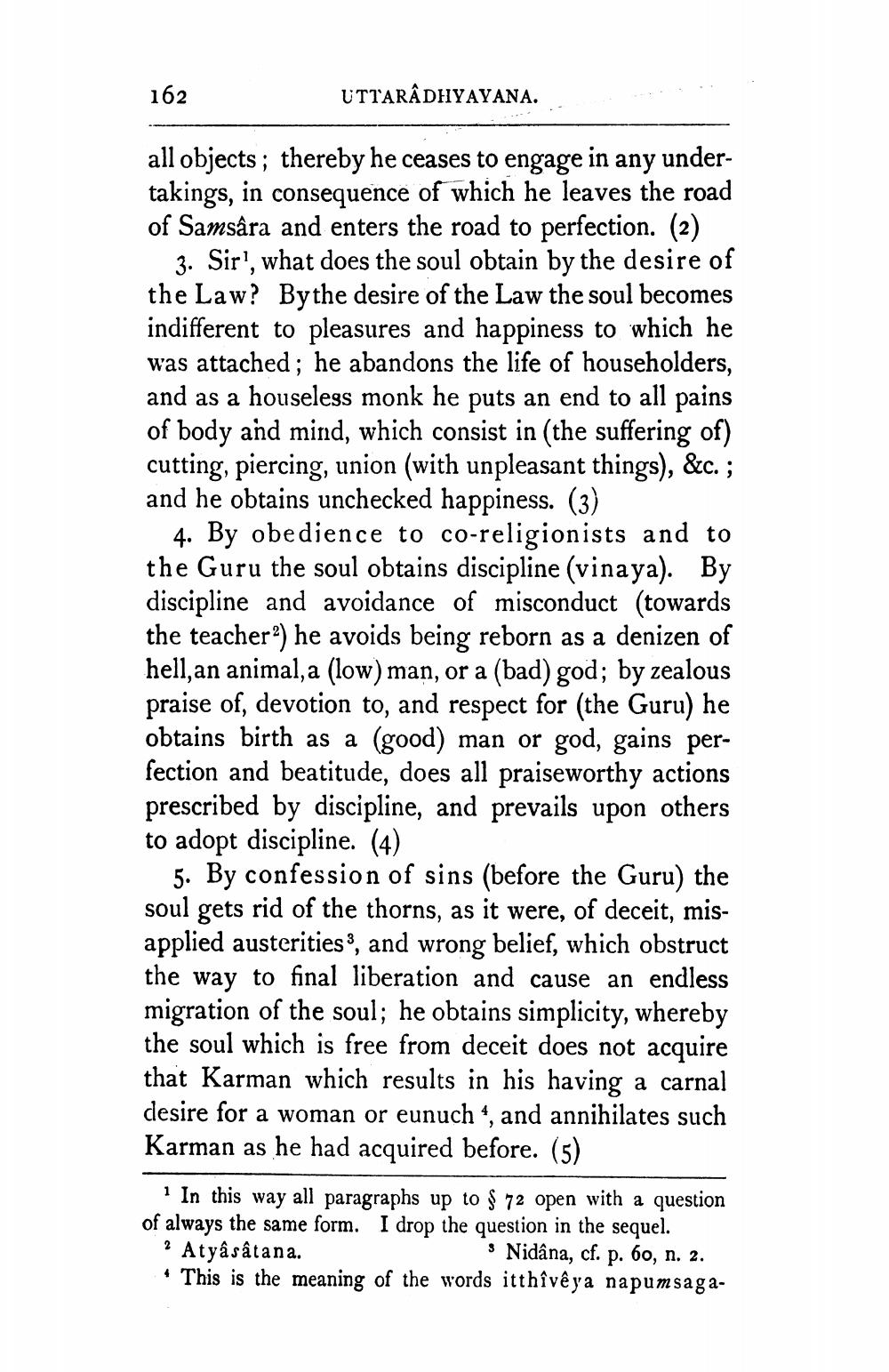________________
162
UTTARADHYAYANA.
all objects; thereby he ceases to engage in any undertakings, in consequence of which he leaves the road of Samsara and enters the road to perfection. (2)
3. Sir', what does the soul obtain by the desire of the Law? Bythe desire of the Law the soul becomes indifferent to pleasures and happiness to which he was attached; he abandons the life of householders, and as a houseless monk he puts an end to all pains of body and mind, which consist in (the suffering of) cutting, piercing, union (with unpleasant things), &c. ; and he obtains unchecked happiness. (3)
4. By obedience to co-religionists and to the Guru the soul obtains discipline (vinaya). By discipline and avoidance of misconduct (towards the teachero) he avoids being reborn as a denizen of hell, an animal, a (low) man, or a (bad) god; by zealous praise of, devotion to, and respect for (the Guru) he obtains birth as a (good) man or god, gains perfection and beatitude, does all praiseworthy actions prescribed by discipline, and prevails upon others to adopt discipline. (4)
5. By confession of sins (before the Guru) the soul gets rid of the thorns, as it were, of deceit, misapplied austerities, and wrong belief, which obstruct the way to final liberation and cause an endless migration of the soul; he obtains simplicity, whereby the soul which is free from deceit does not acquire that Karman which results in his having a carnal desire for a woman or eunuch 4, and annihilates such Karman as he had acquired before. (5)
1 In this way all paragraphs up to $ 72 open with a question of always the same form. I drop the question in the sequel. ? Atyâsâtana.
Nidâna, cf. p. 60, n. 2. * This is the meaning of the words itthîvêya napumsaga




